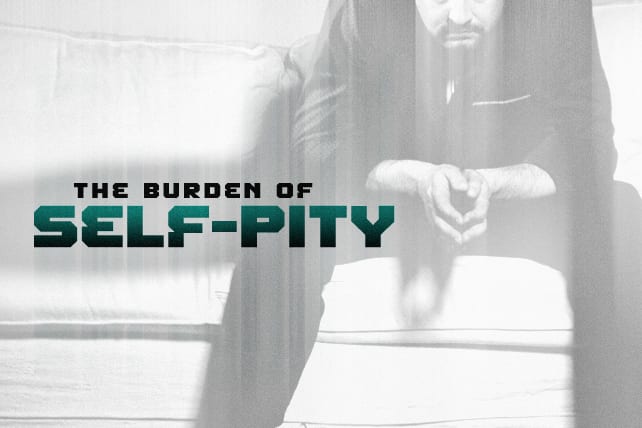I love Jonah not just because of the whole fish episode, but because Jonah is a self-pitying sulker. I don’t endorse his self-pity, but I do identify with it since I’m given to similar kinds of sulking. And I’m thankful that in the Bible God shows the warts of his servants, because I have many warts too. And Jonah reminds me of God’s mercy toward self-pitying sulkers like me and encourages me to lay aside this sinful weight.
A Self-Pitying Prophet
You probably know the story well. God commissioned Jonah to warn the Assyrian capital, Ninevah, that his judgment was about to fall. Jonah suspected God’s gracious motives and jumped on a ship headed in the opposite direction. So God sent a big fish taxi to intercept him and vomit him back out on the beach. Then a repentant Jonah wisely obeyed God, prophesied to the great city and repentance broke out.
This result “displeased Jonah exceedingly, and he was angry” (Jonah 4:1).
And here’s where we see the all-too-familiar marks of self-pity.
Jonah then went outside the city to sulk and watch. Perhaps God would have the good sense to destroy Ninevah after all, but it didn’t look good. God kindly cheered the prophet by causing a plant to grow over his little booth and shade him from the blazing sun. Then God sent a worm to kill the plant and thus the prophet’s shade. This also made Jonah so angry he wanted to die. God responded:
“You pity the plant, for which you did not labor, nor did you make it grow, which came into being in a night and perished in a night. And should not I pity Nineveh, that great city, in which there are more than 120,000 persons who do not know their right hand from their left, and also much cattle?” (Jonah 4.10–11″>Jonah 4:10–11)
Jonah pitied the plant because it shaded him. When the plant died the sun made him feel faint (Jonah 4:8).












